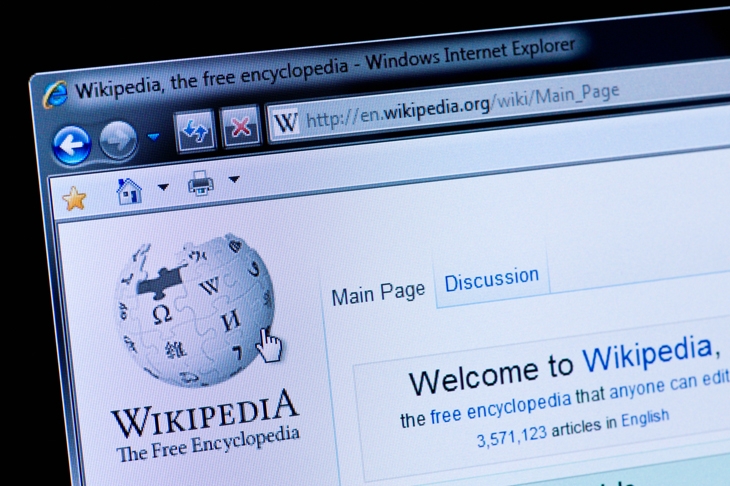How can you be attacked by an encyclopaedia? Until last week I would have thought the idea as absurd as being savaged by a tree frog. Now I know better. Wikipedia bites. Fortunately it can only do so in the electronic dreamland of the internet. But as we all increasingly discover, that world is growing fast alongside the real one: millions spend much of their lives within it, and for many people it is almost as solid as reality.
I signed up some years ago as a Wikipedia ‘editor’, thinking that, as I knew a little about some subjects, I could help to straighten out the online encyclopaedia a bit. Heaven knows, it needs some help. Its worst failing, much like BBC Radio 4’s Today programme, is to portray subjects that are racked with unresolved controversy as if they were settled.
But I soon found out why nobody else had managed to put this right. Almost every significant article is guarded by powerful forces that appear from nowhere if you dare to make changes. Unless you have unlimited time, and a squadron of determined helpers, they will simply remove any alterations you make, and put things back the way they were.
In the end, I did not care enough to fight these battles. And I made it hard for myself by being open about who I am. Most Wikipedia ‘editors’ use pseudonyms. I do not. I have always thought that anonymity, or pseudonymity, ensures that the internet is often spiteful and nasty. But the internet is also quite left-wing, so being the Hated Peter Hitchens makes anything I do a target.
Wikipedia’s rules, full of acronyms and jargon, are like four-dimensional algebra and often feel like the private language of a cult.








Comments
Join the debate for just £1 a month
Be part of the conversation with other Spectator readers by getting your first three months for £3.
UNLOCK ACCESS Just £1 a monthAlready a subscriber? Log in